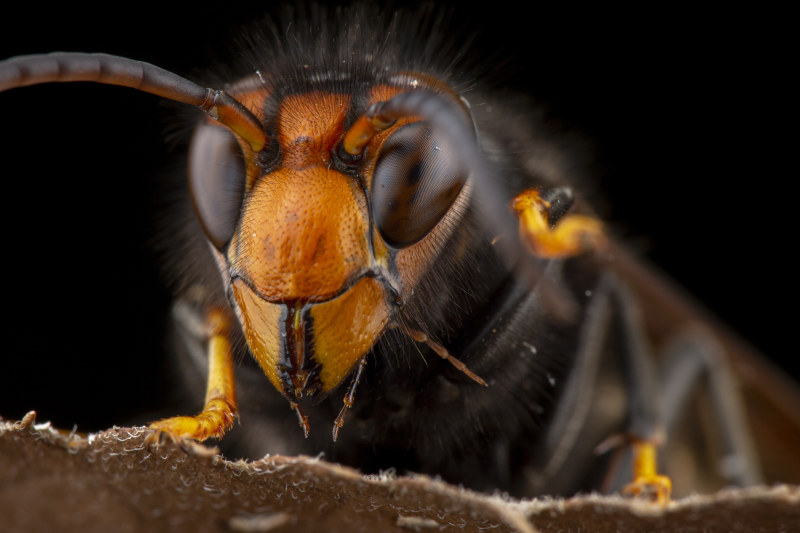Sounds like a science fiction movie, but Giant Asian Hornets have been spotted in the Pacific Northwest and Southwest BC, including one nest that was destroyed in Nanaimo in 2019. Nicknamed “murder hornets” for predation of bee colonies, these insects measure a whopping 3.5 cm in length and the larger queens have a wingspan of up to 7 cm! It is possible they were introduced through imported goods from China, Korea or Japan – their natural habitat. These hornets are considered beneficial in Japan where they prey on harmful insects and caterpillars, protecting local crops, but the honeybees there, have adapted to protect themselves against them. They look like many of our native species such as the bald-faced hornet or yellow jacket, but have a distinctive orange head for easy identification. They can re-sting several times and like all social hornets, will protect their colony if threatened.
How To Report Invasive Insect Species In BC
If you have seen the giant Asian hornet, stay away from the nest and call 1.888.993.3722 through the “Report Invasives” mobile phone app. You should also visit www.bcinvasives.ca to report your sighting.
Do Giant Asian Hornets damage trees?
No, because unlike European hornets that damage trees by stripping bark to build nests and feed on sap, giant Asian hornets burrow in the ground to nest and hunt insects for food – notably honeybees. And that’s the problem. As we know, bees are vital for crop pollination, and crucial for helping BC orchards produce the food we need.
There are however, several native-to-BC insect species that damage trees, creating fall and fire hazards. At Twin Rivers, we’re here to help you identify when you have a problem. More on that in another blog.
It is important to manage insect-damaged trees before they create falling hazards, spread disease or colonize further. Call any one of our three office locations – Kamloops, Sechelt/Gibsons or the Fraser Valley to talk with our knowledgeable staff. Both our wild and urban forests of southwest BC are among the world’s finest, providing healthy outdoor environments and adding beauty to parks and private landscapes. We safely remove dangerous trees, but cutting down trees to prevent hornet or wasp nesting is unnecessary and can adversely affect beneficial native insects that are needed for pollination and decomposition. Let’s protect and manage the trees of BC.

